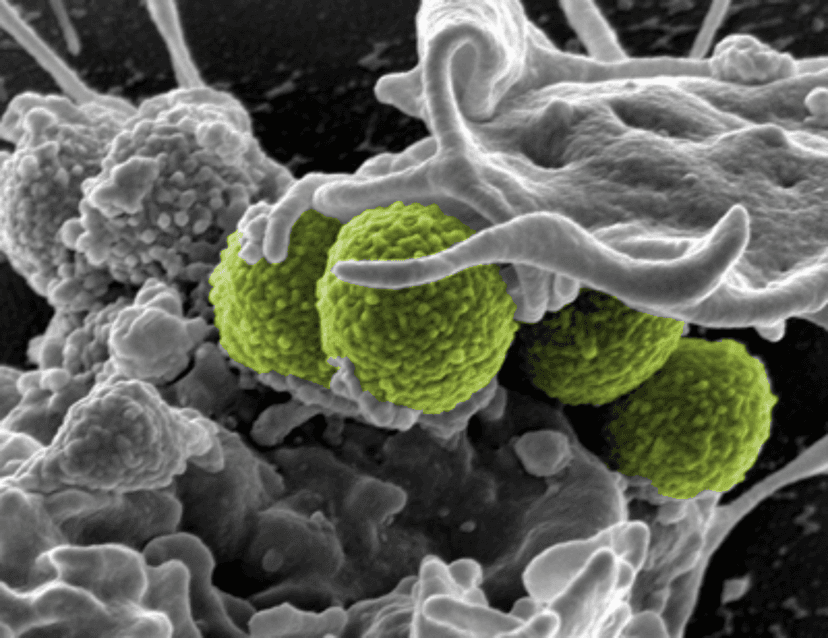The Need for a Microbiome Initiative
Why is microbiome research important?

Microbiome research underscores that all forms of life on Earth, including humans, are part of a complex web. We evolved and coexist with microbial communities that perform essential services for us and for the environment, many of which are still being discovered. For example, bacteria help clean waterways after oil spills, cycle carbon and nitrogen in the soil, aid digestion and the immune system, and can even influence our mood and behavior. Once we understand microbiomes and the connections between the “macro” and “micro” world, we can begin to devise ways to harness them. The potential applications are diverse. Microbiomes could be used to restore damaged ecosystems, enhance food production, combat antibiotic resistance, produce clean energy and treat infections and even chronic diseases.
What is the Unified Microbiome Initiative?
In October 2015, an interdisciplinary group of 48 researchers from 50 academic institutions in the United States called for a national effort to harness the Earth’s microbiomes. The goal of the proposal, which they termed the Unified Microbiome Initiative, is the development and application of new tools to advance our understanding of the microbial communities and new collaborations between physical, life and biomedical sciences, engineering and other disciplines. The researchers envisioned a large-scale public and private initiative to advance the field beyond descriptive approaches to microbiome research and ultimately lead to breakthroughs in fields as distinct as medicine to sustainable energy. They published their proposal in the journal Science. (Read the press release.)
A follow-up paper published in the journal ACS Nano identified the advanced tools the researchers are seeking to develop. These include new analytical methods in bioinformatics, high-resolution imaging technologies, and sequencing techniques for microbial macromolecules and metabolites.
A group of scientists outside the United States, writing in the journal Nature, have called for an International Microbiome Initiative to complement the US program and ensure collaboration and the sharing of standards across borders and disciplines.
Why are scientists calling for a Unified Microbiome Initiative?
Over the past 15 years, microbiome research has exploded. Modern genetic tools have enabled scientists to detect microbes in every biological system, even deep underground. Yet, it is estimated that less than one percent of all microbial species have been identified. What’s even less clear is what all those species do. To accelerate identification and to transition from describing the microbial world to a new phase that explores how communities of microorganisms function, how to predict their actions and how to make use of them, researchers need new tools and collaborations.
The national and international microbiome research proposals map out several urgent needs, including:
- Tools to understand the biochemical functions of gene products, a large portion of which are unknown.
- Technologies that quickly generate complete genomes from individual cells found in complex microbiomes.
- Imaging capabilities that visualize individual microbes, along with their interactions and chemical products, in complex microbial networks.
- Adaptive models that capture the complexity of interactions from molecules to microbes, and from microbial communities to ecosystems.
- International standards for data collection and sharing.
- Comparative approaches to reveal the factors that underlie the structure and function of microbiomes at local and global scales.
What is The Kavli Foundation’s role in microbiome research?
The Kavli Foundation supports fundamental research on science at the atomic scale at five Kavli Nanoscience Institutes, including the work of nanoscientists developing new tools, new materials and new approaches to probe the world at very small scales.
Starting in December 2014, The White House Office of Science and Technology Policy and The Kavli Foundation separately convened a series of coordinated meetings on the microbiome. The meetings focused on identifying challenges and opportunities in microbiome research, and on developing strategic recommendations for accelerating discovery, and culminated in a roadmap for accelerating discovery in the field: the Unified Microbiome Initiative proposal.
Two of the Foundation’s core fields, neuroscience and astrophysics, may benefit from increased knowledge about the microbiome. For example, greater understanding of the interaction between the human microbiome and neurodevelopmental processes could help inform the basic science underlying brain disorders, including autism; there is also emerging evidence that the human microbiome plays a role in neurodegenerative disorders, including Parkinson’s Disease. In space research, studying the microbial communities in the Earth’s most extreme environments is helping astrobiologists understand the conditions that are necessary to support life, aiding the search for life on other planets.
Note: The Kavli Foundation closed work on this initiative in 2019.